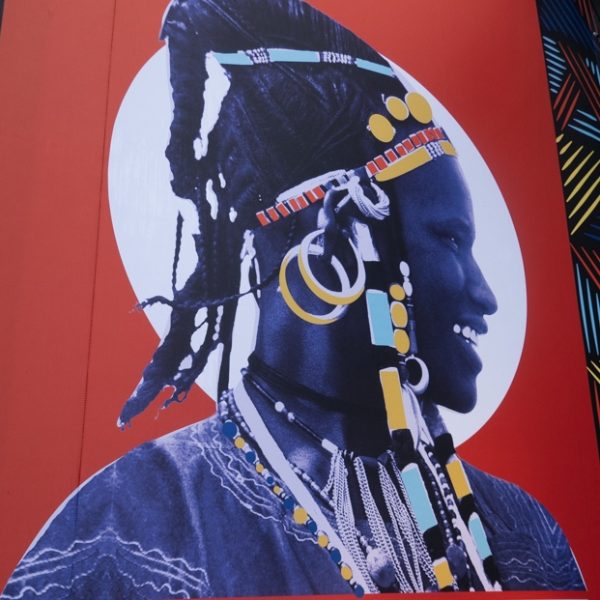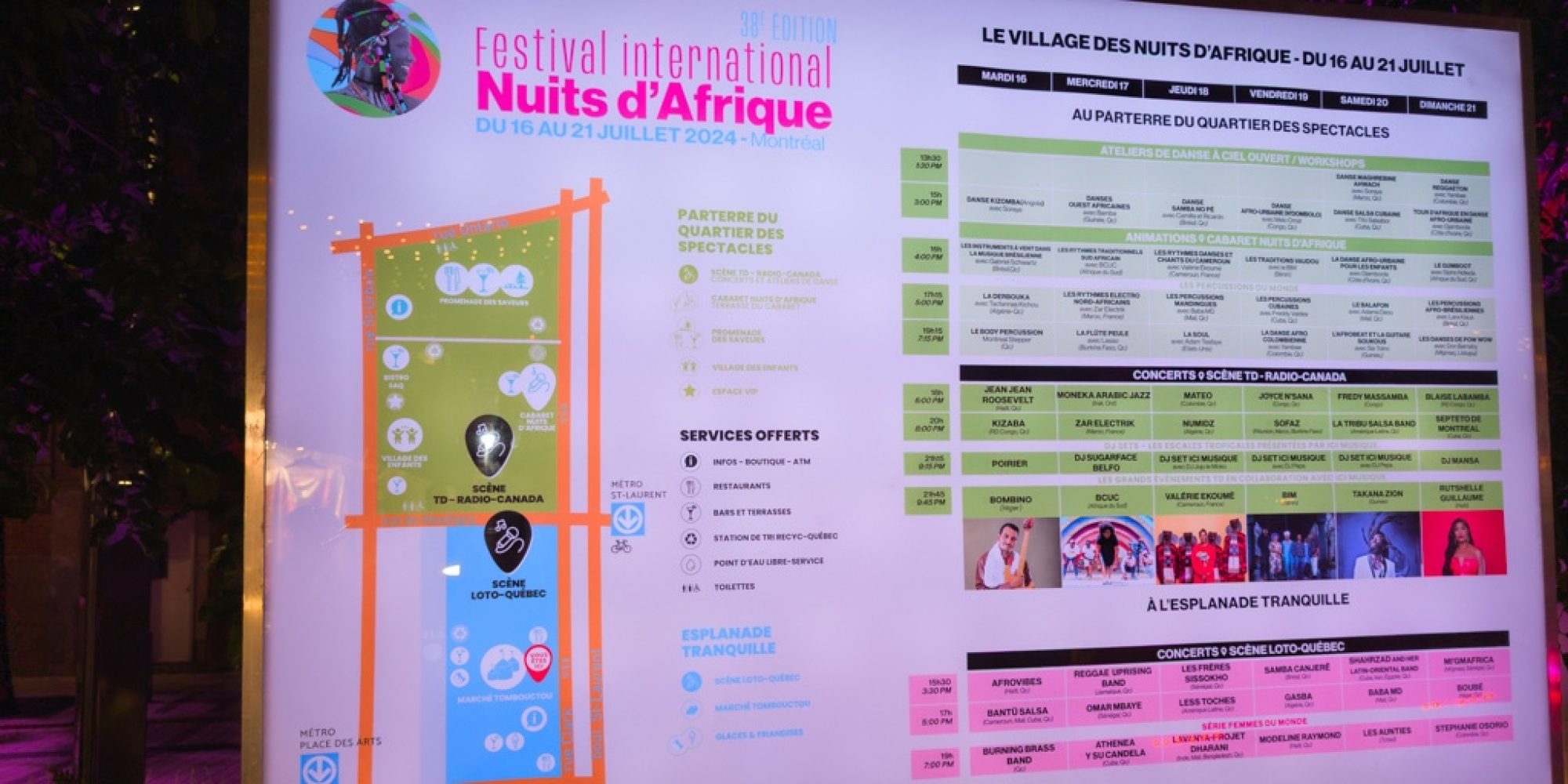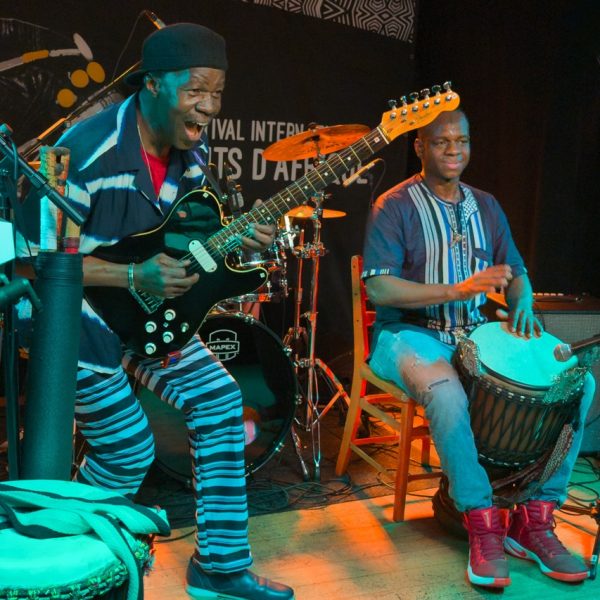Afropop's Ron Deutsch attended the 38th annual Nuits D'Afrique Festival in Montreal, Quebec, from July 9 to 21. The festival, the largest in the Western Hemisphere celebrating music from Africa and the African diaspora, featured two weeks of music with over 30 indoor and 40 outdoor showcases representing more than 30 countries.
Despite ongoing difficulties for African artists in obtaining visas to perform in Canada, the festival offered a smorgasbord of great music, with many artists hailing from Montreal's multi-cultural scene and making their Nuits d'Afrique debuts.
One of the standout performances came from BIM (Benin International Musical), who had previously impressed Deutsch at the festival in 2019. Their sound, which evolved from Benin's Voudon worship dances, defies easy categorization, sliding through genres such as Afro-hip hop, Afrobeat, Talking Heads-esque new wave, and even country waltzes. Deutsch considers them one of the most exciting live acts currently performing and notes that they have been selected for a showcase at WOMEX later this year.
While it was impossible to catch every show during the festival, Deutsch focused on artists who were mostly new to him and left a lasting impression. The festival continues to be a highlight of the summer for world music enthusiasts, offering a diverse array of talented artists and musical styles from across the African diaspora.
Another standout performance came from Pahua, the solo project of Paulina Sotomayor, one half of the Mexico City duo Sotomayor. Sotomayor developed Pahua during the pandemic, continuing her exploration of blending Afro-Latin and Mexican folk music with electronic beats. Her infectious rhythms made it impossible for the audience to stand still during her concert.
Pahua joins an ever-expanding roster of talented Latina musicians and vocalists making waves in the music scene. Whether you're already immersed in this genre or just beginning to explore, Pahua is a must-add to your playlist.
Shifting focus to Brazil, the festival featured a captivating performance by award-winning composer, singer, and producer Alberto Salgado, joined by cavaquinho virtuoso Márcio Marinho. Salgado has collaborated with renowned Brazilian artists such as Chico César and Chico Buarque, while Marinho is a well-respected performer and teacher in Brazil's choro music circles.
The duo's performance showcased the depth and richness of Brazilian music, with Salgado's compositions and vocals complemented by Marinho's masterful cavaquinho playing. Their set was a testament to the enduring appeal of traditional Brazilian genres and the innovative ways in which contemporary artists continue to explore and expand upon these musical traditions.
A group we've been supporters and fans of for some time now, Montreal-based Afrotronix, have now sponsored and produced this project from their mother country of Chad. The Aunties are nine women, a collective of artists who came together escaping and surviving gender-based violence. Singing in their native Sara language, beating on calabashes, and adding electronic beats, their performance is a cry for equality and emancipation, and a celebration of their resilience. It began to rain during their performance, yet the audience was so emotionally involved in their performance, that nary a person left to seek shelter. Quite inspiring.
This year there were two groups, both based in France, who are mixing African, Arabic and Western rhythms. First up was Marseilles-based trio Zar Electrik. “Zar” is a trance ritual originating in Egypt and Ethiopia. Mixing electronic sounds and traditional instrumentation including the gumbri, oud and kora, they totally created a transcendent stew of old and new.
The other, “Electro-Maloya,” Toulouse- based group Sofaz brings together musicians whose backgrounds are from Morocco, Burkina Faso and Reunion Island. Also mixing gumbri, synthesizers into their own gumbo of gnawa meets maloya, two genres in love with 12/8 meter permutations. This was worldbeat fusion at its best.
Montreal is a unique place on the planet where immigrant musicians from around the globe, meet, jam together and discover music from outside their former homelands. So what happened when Cameroonian bassist Just Woan fell in love with Cuban salsa? He created Bantü Salsa. In an interview in 2020, Woan noted: “There’s a narrative side, the thing that griots bring to their approach.... what I wanted to show was the similarities between African and Latin beats.... I think that even in the Afro-Cuban culture, there is that kind of a storyline, and that’s how many stories and traditions are being passed on.”
As for the best of the rest, what's an African festival without some desert blues guitar? Taureg superstar Bombino headlined a superb set. While, Boubé, a former member of both Bombino's and Mdou Moctar's bands, now based in Montreal, having served his apprenticeship and has developed his own unique take on the now popular genre that we liked a lot. In fact, we liked him so much he was one of two recipients of this year's Afropop Award at the festival.
Another headliner we were always happy to see on stage was Cameroonian chanteuse Valerie Okoumé. Also headlining a different night was Soweto Bantu Continua Uhuru Consciousness, aka BCUC, a band that our own Banning Eyre has described in an interview piece as “indescribable.” I concur.
Other local acts we continue to be fans that played at Nuits d'Afrique this year, included Malian-Montreal artist Emdé, aka Baba MD, a former recipient of the Afropop award. And we never stop loving the growling afro-funk voice of Congolese-Montreal singer Joyce N'Sanna. Stephanie Orsorio, originally from Columbia, has received the "Female Artist of the Year" for the last two years at the Canadian Latin Music Awards. We loved her colorful costume and thoroughly enjoyed her set.
While a new group on the scene, Less Toches, whose members pool their Colombian, Mexican, Cuban and Argentinian heritages to offer up a huge repertoire of Latino folk music to explore, were so good we had to give them a second Afropop Award at the festival, as well.
And before we sign off, a tip of our hat to Rumba de Bodas, a Worldbeat band from Bologna, Italy, who unfortunately didn't draw a big crowd at their indoor show at Club Balattou during the first week of the festival due to bad weather, but I very much enjoyed their energy and music.
So, until next year.....
Related Audio Programs
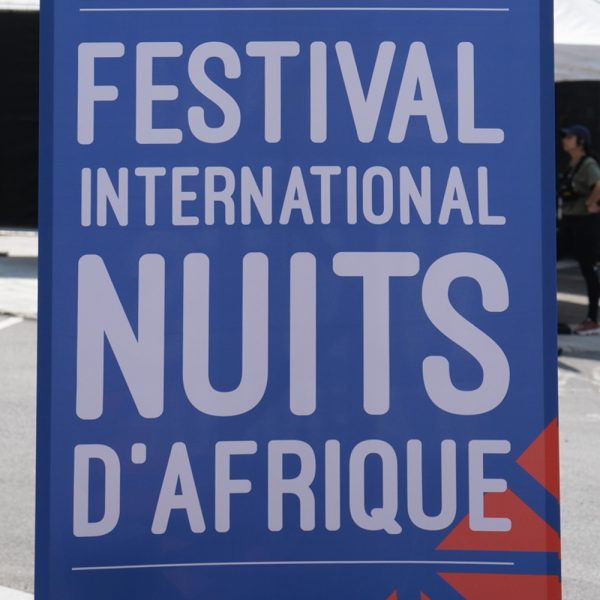
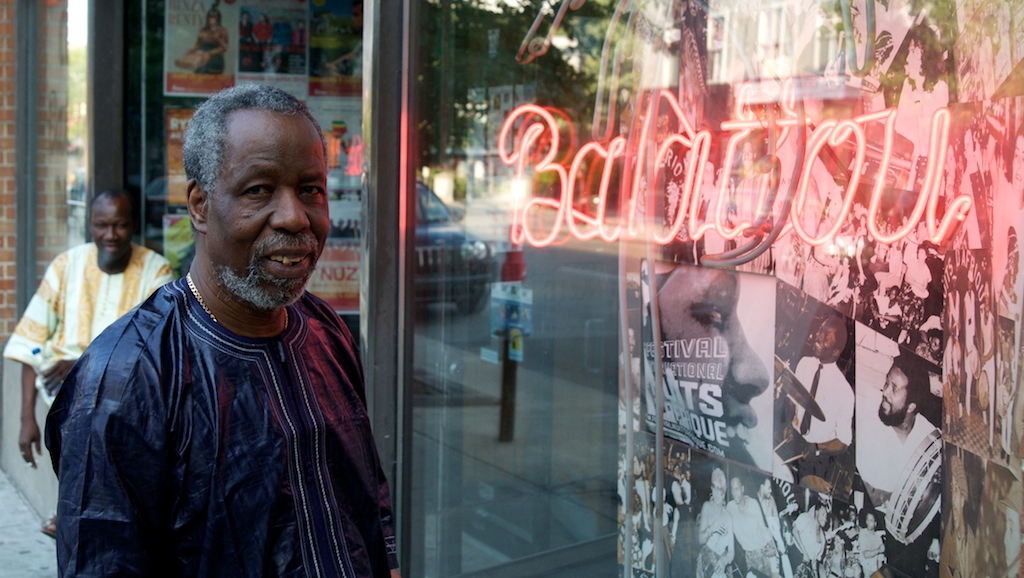
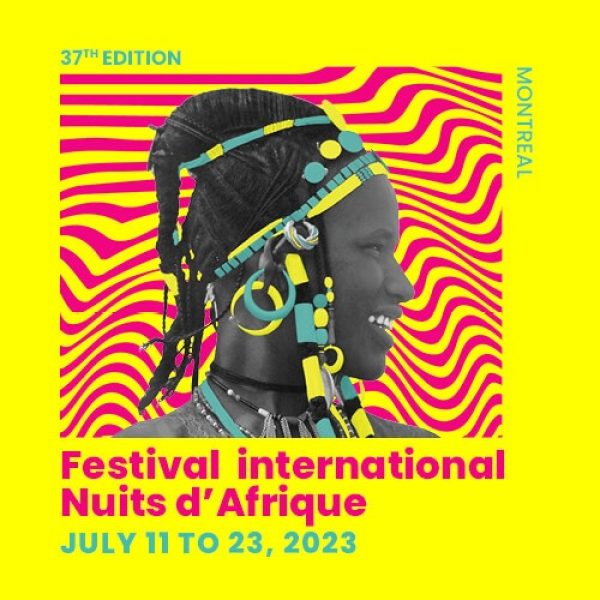
Related Articles
